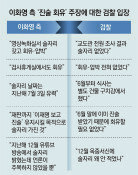Reforestation of N. Korea is precedent for `Green Reunification`
Reforestation of N. Korea is precedent for `Green Reunification`
Posted March. 19, 2014 00:15,
Private organizations of South Korea, North Korea and China have started to make systematic efforts to reforest bare mountains in North Korea. The Green Asia Organization, which seeks to grow trees in mountains and nurture forest farmers at the same time, is to be launched and hold an international symposium on international cooperation measures for reforestation on the Korean Peninsula" on Wednesday.
The organization is established based on the understanding that reforestation of North Korea costs trillions of won (billions of U.S. dollars) now and the cost will increase even further as time goes. Deforestation in North Korea not only directly affects the ecosystem of South Korea but also increases the cost for reunification. Besides, it can evolve into a more serious environmental issue in East Asia.
The Dong-A Ibo launched Prepare for Unified Korea project on April 1 last year in celebration of the 93rd anniversary of the newspaper, and set out green unification as one of the seven key commitments. Since then, the Dong-A Ibo has consistently emphasized the importance of reforestation in North Korea.
According to the Korea Forest Services report on the cost for reforestation in North Korea that the Dong-A Ilbo obtained on Tuesday, as of 2008 deforested mountains accounted for 32 percent of the total land of North Korea, about 2.84 million hectares. To restore the area, about 32 trillion won (about 30 billion dollars) is estimated to be required.
Deforestation is proceeding at a rapid pace in North Korea. It appears even faster in areas with high population density. The Korea Forest Research Institute has recently analyzed photos taken by a German commercial satellite and found deforestation progressed in North Korean cities of Pyongyang and Gaesong more rapidly than rural areas of Hyesan and Bongsan over the same period of time. The institute concluded that such discrepancy is cause by reckless lumbering and reclamation in urban areas. Besides, some reclaimed lands are not used for cultivation and just wasted because of the spread of crop theft, further exacerbating deforestation. In this regard, many argue that reforestation in North Korea should be beyond planting trees and in line with measures for food, fuels and income.







